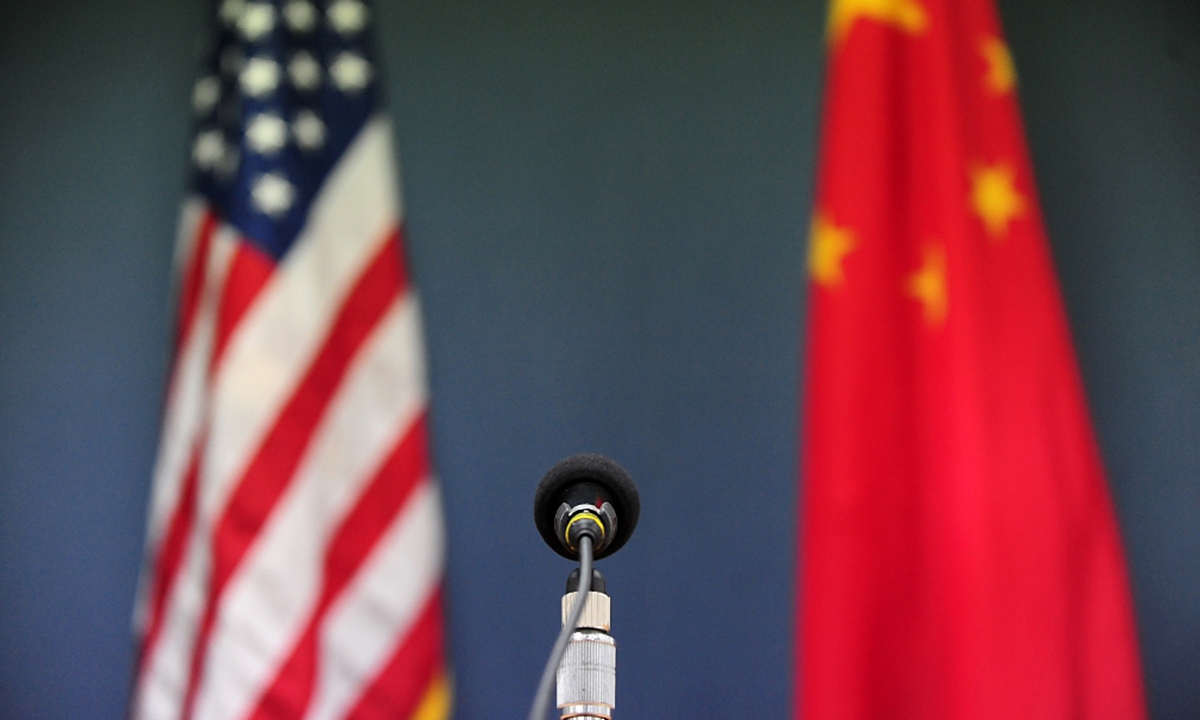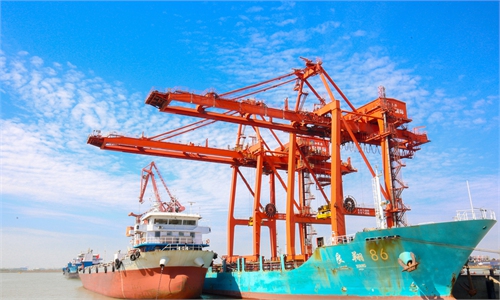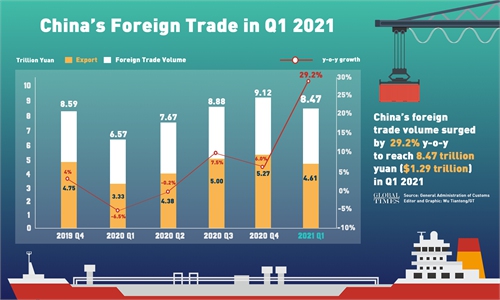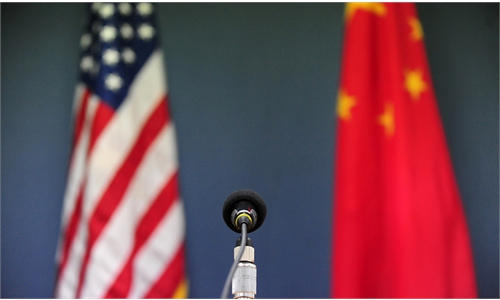
Photo: VCG
The Biden administration appears to be considering changing the US' much-maligned tariff policy that has pushed the country into trade conflicts with all of its major trading partners and inflicted grave damage on US consumers and businesses.After being grilled by US Senators over the damages caused by the tariffs during a hearing on Wednesday, US Trade Representative Katherine Tai said that the administration was seeking better trade remedy than section 232 of the 1962 Trade Expansion Act, which former President Donald Trump used to impose tariffs on steel and aluminum imports from China and other economies.
"What I would propose is that we need 2021 tools for addressing the 2021 challenges we have, rather than relying on 1962 tools and retrofitting them for the challenges we have now," Tai said.
Since taking over the White House in January, the Biden administration has refrained from taking any action in its trade policies toward China, saying it would conduct a review and consult with allies. But it appears that US officials can no longer hide under their ambiguous stance, as pressure is piling on them to change or even scrap the tariffs.
Shortly before the hearing on Wednesday, the American Chemistry Council urged the Biden administration to ease tariffs that hurt the chemical industry. "While acknowledging the issues behind the dispute, the ACC also [recognized] the value of engaging in the Chinese market, which supports US production and exports," the group said.
Evidence is also mounting that the US tariffs have not only failed to boost the US' manufacturing sector - a main goal behind the move - but also hurt US industries. According to a Wall Street Journal report on Wednesday, while US tariffs have reduced imports from China, US companies actually bought more from other countries.
"If the goal was to increase manufacturing employment in the [US], I don't see any evidence that that's happened," Craig Allen, president of the US-China Business Council, told the Wall Street Journal. "If the goal was to increase imports from other countries in Asia or increase manufacturing employment in Vietnam, it's succeeded."
Chinese officials have repeatedly stated that tariffs are not good for China, the US or the world. Chinese businesses may end up losing market share in the US, but US companies and consumers would also pay a heavy price. With the damage adding up for businesses in China, the US and around the world, changes to the US tariffs are both urgently needed and justified.
However, beyond empty words about a "review," the Biden administration has not taken any concrete steps to reverse the toxic trade policies under Trump.
What's more worrisome is that the administration appears to treat the tariffs as a form of leverage against China, as Tai previously indicated. That begs the question: How can the tariffs be leverage for the US if they inflict so much pain on its own businesses and consumers?
On the Chinese side, there should be no delusion that the tariffs would disappear magically. Even if the US adjusts its tariff policy in general, lowering or rolling back tariffs on China won't come easily, and the general trend of the US stepping up competition with China won't change.
That was also clear from Tai's remarks at the hearing on Wednesday. She said that the US would be "bold and creative in taking steps to level the playing field" and force China to abide by international rules and norms.
Such hostile rhetoric is counterproductive, especially when Tai is reportedly seeking to meet with her Chinese counterpart to discuss trade issues. Asked about the potential meeting, the Chinese Commerce Ministry on Thursday reiterated that both sides should address each other's concerns through dialogue on the basis of mutual respect and equality.
That should send a very clear signal to US officials that China's door is open for holding talks and improving ties but talks must be based on equal footing. However, if the US wants to escalate trade tensions and hurt Chinese interests, China should also be ready to take firm countermeasures.



